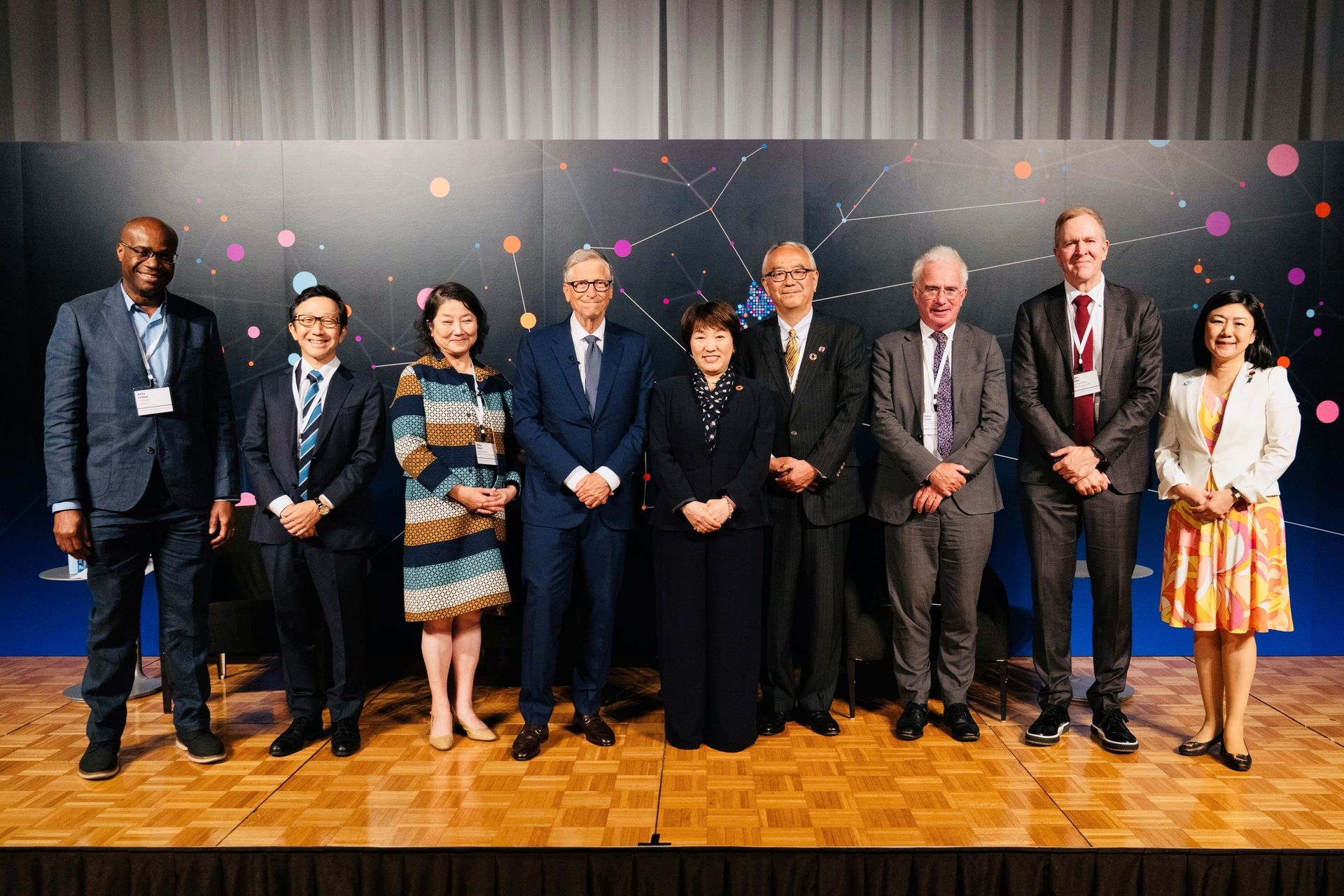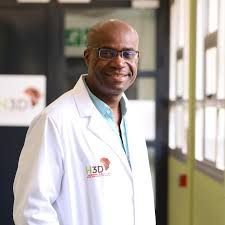Reflections from Japan: Building Equitable Partnerships for Global Health Innovation
Reflections from Japan: Building Equitable Partnerships for Global Health Innovation

Over the past week, I had the privilege of participating in two major convenings in Japan focused on global health and
innovation:
∙Innovation in Action: Harnessing Japan’s R&D Potential for Global Health in Tokyo where Bill Gates
delivered the Keynote address, and
∙The ninth Tokyo International Conference on African Development (TICAD 9) in Yokohama contributing to
the thematic health technology innovation session.
Both events brought together leaders from government, academia, industry and philanthropy – voices that represent
different parts of the global health ecosystem, but who are united by a shared question: how can innovation be
mobilised to ensure better health outcomes for all?
From my perspective as an African scientist, these discussions reaffirmed a lesson I have learned repeatedly
throughout my career: no single country, institution or region can succeed alone. Diseases such as malaria,
tuberculosis and antimicrobial resistance do not respect borders; nor will the next pandemic. Our solutions must
therefore be global in design and inclusive in execution.
Africa is often spoken about as a continent of need. But these discussions gave me the opportunity to highlight a
different truth: Africa is also a continent of innovation. Through the work of the Holistic Drug Discovery and
Development Centre (H3D) and, more recently, the Grand Challenges African Drug Discovery Accelerator (GC
ADDA), we have built strong foundations for drug discovery on the continent. These initiatives show that Africa can
contribute world-class science, innovation, talent and infrastructure to solve problems of both local and global
importance.
At the heart of our model is a project-driven approach to capacity strengthening – ensuring that African scientists
are skilled and empowered while delivering on globally aligned, locally relevant projects. This has created what I
often describe as an absorptive capacity: the ability to attract, develop and retain the continent’s brightest minds in
science. It is this foundation that enables Africa to be not just a beneficiary of knowledge, but a generator of it.
Another exciting frontier is the role of AI in health innovation. At H3D, we are already using AI to accelerate drug
discovery – bringing efficiency, speed and significant cost savings to projects. Beyond this, AI in pharmacogenomics
offers the potential to tailor drugs to Africa’s genetically diverse populations, ensuring that treatments are both
effective and equitable. For a continent often left behind in global clinical trials, this could be transformative.
The conversations at TICAD also underscored the importance of expanding Africa’s ecosystem for innovation. The
GC ADDA was established to do exactly this: to leverage expertise and infrastructure across the continent so that no
country or institution is working in isolation. Looking ahead, the integration of R&D with local pharmaceutical
manufacturing – specifically active pharmaceutical ingredient (API) manufacturing – is a critical next phase. This
linkage between the R&D value chain (from preclinical discovery and clinical development to access) and the
manufacturing value chain (from manufacturing for preclinical studies and clinical trials to commercial manufacture
of approved products) has the potential to create jobs, spin-out companies and greater resilience in Africa’s health
systems.
What struck me in Japan was the unique opportunity to build stronger partnerships between our two regions. Japan has
an extraordinary legacy in innovative pharmaceutical R&D and regulation – including experience in “ethnic
sensitivity” studies, which consider how factors such as genetics, physiology and local practices shape the
effectiveness of medicines on the local population. For Africa, where populations are arguably the most genetically
diverse in the world, such collaboration could be transformative.
But meaningful collaboration requires more than technical expertise. It must be rooted in mutuality: mutual interest,
mutual responsibility, mutual accountability, mutual trust and mutual respect. It also requires long-term vision –
partnerships that share risks as well as rewards, that build trust while advancing projects forward and that place
communities at the centre.
If there is one message, I hope colleagues carried away from these conversations, it is this: Africa is open for business
in science and innovation. Not merely as a recipient, but as a partner – ready to co-create knowledge, deliver solutions
and shape a more equitable future for global health.
I leave Japan inspired and energised by the possibilities of what can be achieved when we combine Africa’s
innovative potential with Japan’s strengths. The journey ahead will require patience, courage and collaboration, but I
am more convinced than ever that together, we can achieve breakthroughs that matter not only for Africa, but for the
world.

